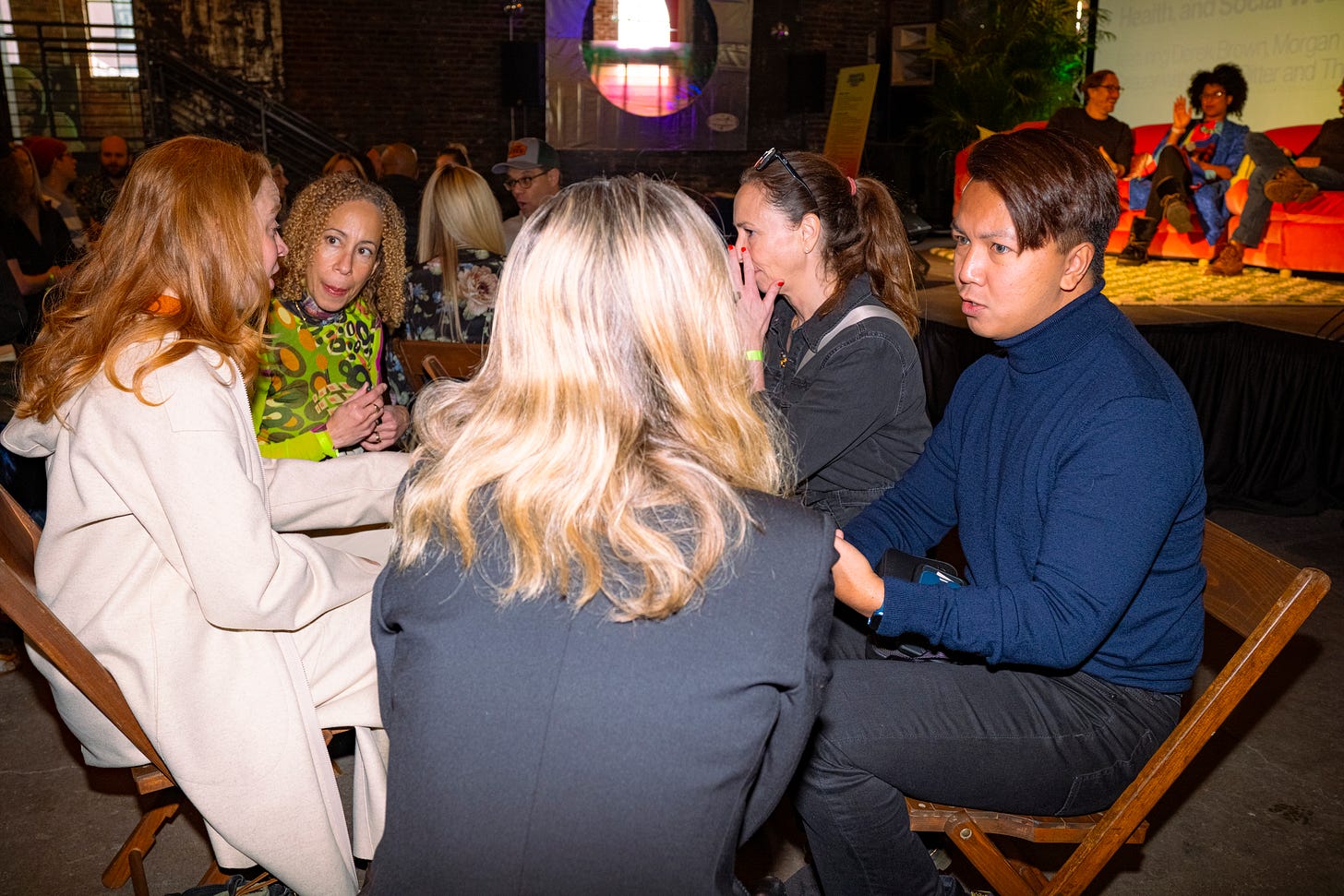Abraham Lincoln on Mindful Drinking
How an 183-year-old speech in Springfield, Illinois, presaged the mindful drinking revolution.

Four score and a few too many drinks ago, our culture embarked on a long and winding journey with alcohol—sometimes celebratory, sometimes destructive, and sometimes with little regard at all for its consequences.
But on February 22, 1842, Abraham Lincoln took the podium at the Second Presbyterian Church in Springfield, Illinois, and delivered a speech that, while ostensibly about temperance,1 pointed to something much bigger—how we bring about change. Today, on the anniversary of that address, it’s worth revisiting his message, not just as a historical artifact, but as a lesson in persuasion, empathy, and the evolving conversation around alcohol.
Lincoln was a teetotaler but not in the moralizing sense that would later define the temperance movement. He wasn’t there to preach prohibition or shame drinkers into submission. Instead, he spoke about a radical idea for his time: that real change doesn’t come from judgment, but from understanding. He criticized past temperance advocates for alienating drinkers by treating them as moral failures rather than human beings in need of support. Instead, he praised the Washingtonians, a proto-Alcoholics Anonymous (AA) organization, who helped others change their relationship with alcohol through camaraderie and shared experience, not shame or compulsion.
Lincoln framed this movement as a continuation of the American Revolution, calling it a "new conquest" and a moral struggle that could further the principles of liberty. He declared, "Happy day, when, all appetites controlled, all passions subdued, all matters subjected, mind, all-conquering mind, shall live and move the monarch of the world!" This was, in Lincoln’s view, another fight for freedom—freedom from destructive habits that cloud our judgment and sap vitality.
"Happy day, when, all appetites controlled, all passions subdued, all matters subjected, mind, all-conquering mind, shall live and move the monarch of the world!" - Abraham Lincoln, Temperance Address 1842
If that doesn’t sound revolutionary, consider the broader cultural attitudes toward alcohol both then and now. The conversation around drinking has often swung between two extremes—moral condemnation and unbridled indulgence. Either you drink, or you don’t. Either you’re in, or you’re out. Lincoln’s speech, though almost 200 years old, points to a more nuanced, pragmatic middle ground. He believed in the power of persuasion over prohibition, the effectiveness of personal experience over rigid dogma.
That’s where mindful drinking fits into this conversation. Like Lincoln’s Washingtonians, the mindful drinking movement isn’t about abstinence for the sake of purity. It’s not about issuing moral decrees. It’s about making conscious choices, about recognizing that alcohol while often complicated isn’t inherently good or bad—it’s how we engage with it that matters. Instead of laws or stigma dictating our drinking habits, we’re asked to consider our own relationship with alcohol. Are we drinking out of habit or intention? Are we enjoying the moment or numbing ourselves? And most importantly, are we making space for others to answer those questions for themselves?
Lincoln understood that change happens not when people feel forced, but when they feel empowered to choose something better. That’s why his speech still resonates today. The most effective way to shift culture isn’t through condemnation, but through curiosity and connection. We need to pull up a chair, engage in thoughtful conversation, and truly listen. We need to share stories of resilience and possibility, reminding ourselves that change is most powerful when it comes from within and is supported by a community that uplifts rather than condemns. That’s the kind of dialogue we need more of today.
And we need it more than ever—not just in how we drink, but in how we navigate the deeply divided and uncertain political landscape of our time.
We’re at a crossroads, worried about the future of our democracy and the kind of change that is possible. Lincoln’s call for persuasion over coercion, for understanding over judgment, is not just about temperance—it’s about the way we engage with one another in every facet of life.
So on this anniversary of Lincoln’s “Temperance Address,” let’s take his lesson to heart. Whether we drink or don’t, whether we’re rethinking our relationship with alcohol or helping others do the same, let’s lead with understanding, not judgment. Because if Lincoln was right—and I think he was—real change doesn’t start with coercion. It starts with a conversation.
What’s happening and what’s next…
I’m joined by Marcos Salazar of the Adult Non-Alcoholic Beverage Association (ANBA) on the latest Mindful Drinking Podcast to discuss, Are Non-Alcoholic Drinks Getting Any Better? 🎧
Samuel Ashworth details the rise of cocktail tasting menus in “We’re in the Midst of a Cocktail Tasting Menu Mini Boom” for Punch magazine, a trend some may know my former bar the Columbia Room helped to popularize. ✍🏻
Dōgon (and my cocktail program) gets a shoutout as one of the “9 exciting new restaurants to try around D.C.” by Anna Spiegel for Axios DC. 🍽️
In VinePair, writer Evan Rail explains “The Secret to Flavorful Booze-Free Cocktails? NA Beer,” with quotes from me. 🗣️
Temperance refers to moderation or self-restraint, particularly in the context of avoiding excess. Historically, it is most commonly associated with the Temperance Movement, which advocated for reducing or abstaining from alcohol consumption due to its perceived negative social and moral effects.





Derek, this line truly moved me: Lincoln understood that change happens not when people feel forced, but when they feel empowered to choose something better.
So true. And you are helping to make that happen for many people.
Thank you,
Susan
Wouldn’t the world be a better place if we followed that simply adage you mention? “let’s lead with understanding, not judgment.” !!